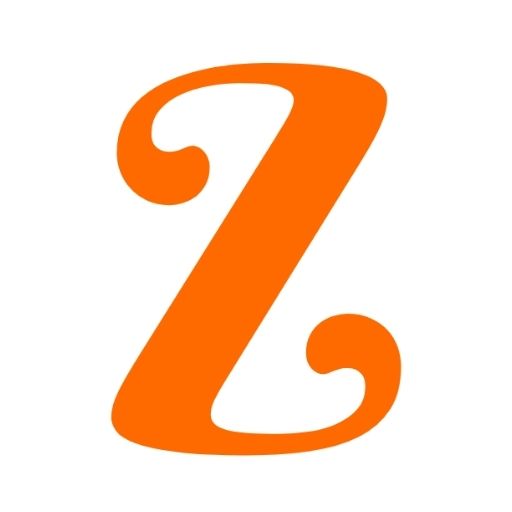Blockchain tools refer to the various software and hardware solutions that are used to build, deploy, and manage blockchain networks.
Blockchain is a decentralized ledger technology that is designed to facilitate secure and transparent transactions.
Some of the popular blockchain tools include Ethereum, Hyperledger Fabric, and Ripple.
Ethereum is an open-source blockchain platform that enables developers to create smart contracts and decentralized applications.
Ripple is a real-time gross settlement system, currency exchange, and remittance network that uses blockchain technology.
Some of these tools include blockchain development frameworks, blockchain-as-a-service (BaaS) platforms, and blockchain analytics tools.
How To Use blockchain tools?
One of the most popular applications of blockchain tools is in the financial industry.
Blockchain-based payment systems and digital currencies, such as Bitcoin and Ethereum, have revolutionized the way we transact money by eliminating the need for intermediaries and enabling faster and cheaper transactions.
By using blockchain technology, supply chain managers can track the movement of goods and verify the authenticity of products, thereby reducing the risk of counterfeiting and improving the efficiency of logistics.
By using blockchain technology, patients can have full control over their medical records, and doctors and hospitals can access patient information securely and efficiently.
Another application of blockchain tools is in the field of identity management. By using blockchain technology, individuals can control their digital identity and share their personal information only with authorized parties, thereby reducing the risk of identity theft and fraud.
In conclusion, blockchain tools have the potential to revolutionize various industries by creating secure and transparent transaction networks.
As the adoption of blockchain technology continues to grow, we can expect to see more innovative use cases for blockchain tools in the future.
The 10 Best Blockchain Tools Are:
Also Read:
- 5 Ways AI Works With Locational Tracking
- 13 Best Artificial Intelligence Tools For Affiliate Marketing in 2023
- 10 Best AI Tools For Scaling Up Your Business Online in 2023
1. Ethereum

Ethereum blockchain has several tools that make it popular. These tools include Solidity, Remix, and Truffle.
Solidity is a programming language used to write smart contracts on the Ethereum network. Remix is an IDE that allows developers to write and test smart contracts in a web browser.
Truffle is a development environment that enables developers to create, test, and deploy smart contracts with ease.
These tools have made the Ethereum blockchain a preferred platform for developing decentralized applications.
They have also opened up new opportunities for businesses and entrepreneurs to build innovative solutions on the blockchain.
Overall, Ethereum’s blockchain tools continue to drive the growth and adoption of decentralized applications across various industries.
Features:
- Smart contracts
- Decentralized applications
- Ethereum Virtual Machine (EVM)
2. Hyperledger Fabric

Hyperledger Fabric is a popular blockchain platform used by businesses to build enterprise-grade decentralized applications.
Fabric offers several tools to support the development and deployment of blockchain-based solutions.
One of these tools is the Fabric SDK, which provides APIs for building and interacting with Fabric networks.
Another tool is Composer, which is a development framework for building blockchain applications using a high-level, domain-specific language.
The fabric also offers Fabric CA, a certificate authority that manages user authentication and authorization on the network.
Overall, these tools make it easier for businesses to adopt blockchain technology and create innovative solutions on the Fabric platform.
Features:
- Permissioned network
- Modular architecture
- Smart contracts
3. Ripple

Ripple is a blockchain platform that offers several tools to facilitate fast, secure, and low-cost cross-border payments.
One of its primary tools is the XRP Ledger, which enables the transfer of digital assets in real time.
Another tool is RippleNet, which is a network of banks and payment providers that use Ripple’s technology to facilitate international payments.
Ripple also offers xCurrent, a payment processing platform that enables banks to settle cross-border transactions instantly.
Additionally, xVia is a payment interface that enables businesses to send and receive payments using Ripple’s network.
These tools have made Ripple a popular choice for businesses looking to streamline their cross-border payment processes.
Features:
- Consensus algorithm
- Fast transactions
- XRP token
4. Corda

Corda is a distributed ledger platform that offers several tools to enable businesses to build secure, scalable, and interoperable blockchain solutions.
Corda’s key tool is the Corda Node, which is a lightweight component that runs on each participant’s device and communicates with other nodes on the network.
Corda also offers a range of APIs, including the Corda Finance API, which enables the development of financial applications on the Corda platform.
Additionally, Corda provides a range of development tools, including a web-based development environment, a testing framework, and a network visualization tool.
These tools make it easier for businesses to build and deploy blockchain-based solutions on the Corda platform.
Features:
- Smart contracts
- Privacy
- Integration with legacy systems
5. Quorum

Quorum is a blockchain platform that offers several tools to enable businesses to build secure and efficient blockchain solutions.
One of the Quorum’s key tools is the Constellation consensus mechanism, which is designed to provide high transaction throughput and low latency.
Quorum also offers the Tessera privacy framework, which enables secure storage and transmission of confidential data on the blockchain.
Additionally, Quorum provides a range of development tools, including the Quorum Developer Toolkit, which includes a web-based IDE and a smart contract testing framework.
These tools make it easier for businesses to build and deploy blockchain-based solutions on the Quorum platform, particularly in industries such as finance and supply chain management.
Features:
- Privacy
- Smart contracts
- Faster transactions
6. Bitcoin

It is a decentralized cryptocurrency that operates on a blockchain platform. Bitcoin offers several tools to facilitate the creation and exchange of digital assets.
One of its key tools is the Bitcoin Core software, which is used to validate transactions on the Bitcoin network.
Another tool is the Lightning Network, a layer-two protocol that enables instant and low-cost micropayments on the Bitcoin network.
Additionally, Bitcoin provides a range of development tools, including APIs and libraries for building Bitcoin-based applications.
These tools have made Bitcoin a popular choice for businesses and individuals looking to transfer value globally without the need for intermediaries.
Features:
- Decentralized network
- The limited supply of 21 million bitcoins
- Secured using cryptography
- Public ledger records all transactions
- Transparent and immutable
7. Stellar

Stellar is a blockchain platform that offers several tools to enable the creation and exchange of digital assets.
One of its primary tools is the Stellar Consensus Protocol, which is designed to provide fast and secure transaction validation on the network.
Stellar also offers the Stellar Development Kit, a set of libraries and tools for building applications on the Stellar network.
Additionally, Stellar provides a range of APIs, including the Horizon API, which enables developers to interact with the Stellar network.
These tools have made Stellar a popular choice for businesses and organizations looking to facilitate cross-border payments and other financial transactions in a fast and secure manner.
Features:
- Designed for cross-border payments and asset transfers
- Fast transaction times
- Low fees
- Supports a wide range of currencies and assets
- A decentralized network for seamless asset exchange
- Decentralized exchange for asset trading
8. EOS

EOS is a blockchain platform that offers several tools to enable the creation and deployment of decentralized applications.
One of its primary tools is the EOSIO software, which is used to develop and run applications on the EOS network.
EOS also provides a range of development tools, including the EOSIO SDK, which includes libraries, APIs, and other resources for building applications on the EOS network.
Additionally, EOS offers a range of governance tools, including the EOS Constitution and a voting system for selecting block producers.
These tools have made EOS a popular choice for businesses and developers looking to create scalable and efficient decentralized applications.
Features:
- Designed for decentralized application development
- Fast transaction times and scalability
- Delegated proof-of-stake consensus algorithm
- Support for a wide range of applications
- Software development kit for creating decentralized applications and smart contracts.
9. Tezos

Tezos is a blockchain platform designed for decentralized application development and smart contract execution.
Its features include on-chain governance, formal verification, and a self-amending mechanism that allows for protocol upgrades without hard forks.
Tezos uses a proof-of-stake consensus algorithm and features fast transaction times and low fees.
Developers can create decentralized applications and smart contracts using Tezos’s software development kit, and users can access a range of decentralized applications built on the platform.
Tezos’s focus on on-chain governance and protocol upgrades has made it a popular choice for decentralized application development.
Features:
- Designed for decentralized application development and smart contract execution
- On-chain governance
- Formal verification
- The self-amending mechanism for protocol upgrades
- Proof-of-stake consensus algorithm
- Fast transaction times and low fees
10. Hashgraph

Hashgraph is a blockchain alternative designed for high-speed, secure, and fair distributed consensus.
Its features include fast transaction times, high throughput, and low fees. Hashgraph uses a consensus algorithm called the gossip protocol, which allows for efficient communication and consensus among nodes.
It also features a virtual voting algorithm that ensures fairness and prevents manipulation.
Hashgraph’s focus on fast, secure, and fair distributed consensus has made it a popular choice for use cases such as cryptocurrency, gaming, and supply chain management.
Features:
- Designed for high-speed, secure, and fair distributed consensus
- Fast transaction times, high throughput, and low fees
- Gossip protocol consensus algorithm
- Virtual voting algorithm for fairness and prevention of manipulation
- Popular for cryptocurrency, gaming, and supply chain management use cases.








